If you have sensitive skin, finding the right skincare products can be a challenge. Sensitive skin is easily irritated, and many skincare products can cause redness, stinging, and other uncomfortable reactions. But with the right approach and the right skincare products for sensitive skin, you can take care of your sensitive skin and keep it looking and feeling healthy. In this blog post, we'll cover some of the do's and don'ts of skincare for sensitive skin, as well as some of the best products for sensitive skin. Whether you're looking for the best moisturizer for sensitive skin, the best acne treatment for sensitive skin, or the best facial cleanser for sensitive skin, we've got you covered.
Does sensitive skin treatment work?

Sensitive skin treatment can be effective, but it's important to approach it in the right way. If you're struggling with sensitive skin, it's important to talk to your dermatologist or skincare professional. At Clinikally, you can book an appointment with doctor for an online dermatologist consultation. They can help to identify the causes of your sensitive skin, and can recommend the best treatment options for your specific needs. With the right treatment plan, you can enjoy healthier, more comfortable skin, and find relief from irritation and redness.
Identifying underlying causes of skin sensitivity

Identifying the underlying causes of skin sensitivity requires taking into account a number of factors that can contribute to or trigger sensitivity reactions. Here are some common factors and approaches for determining the root causes:
-
Environmental Factors: Examine your exposure to extreme weather conditions, such as high temperatures, wind, and sun. Consider whether changes in climate or allergens in the environment are contributing to skin sensitivity.
-
Skincare Products: Check the ingredients list on your skincare products. Harsh chemicals, perfumes, preservatives, and allergens can all cause sensitivities. Consider purchasing fragrance-free or hypoallergenic products.
-
Allergies: Check to see if you have any known allergies to certain components in skincare, scents, metals, or fabrics. Skin sensitivity, redness, itching, or swelling are all symptoms of allergic responses.
-
Underlying Skin Conditions: Consult a dermatologist to rule out or treat underlying skin diseases that can lead to increased skin sensitivity, such as eczema, rosacea, psoriasis, or contact dermatitis.
-
Diet and Nutrition: Consider whether dietary issues, such as food allergies or sensitivities, are affecting your skin's health. Certain diets or nutritional deficiencies may cause skin responses in some people.
-
Hormonal Changes: Check to see if skin sensitivity correlates with hormonal changes like puberty, menstruation, pregnancy, or menopause. Hormonal variations might have an effect on skin conditions.
-
Stress and Lifestyle Factors: High levels of stress, a lack of sleep, and poor lifestyle choices can aggravate skin sensitivity. Manage stress by using relaxation techniques and getting enough sleep.
-
Medications: As a side effect, some drugs might cause skin sensitivity. If you feel that your medicine is causing your skin problems, talk to your doctor about possible alternatives.
-
Occupational Exposures: Consider whether your job requires you to be exposed to irritants or allergens. Due to occupational exposures, certain occupations, such as healthcare professionals or those in the beauty sector, may be more prone to skin sensitivity.
-
Genetic Predisposition: Determine whether sensitive skin or skin disorders run in the family. Genetic factors can have an impact on individual skin traits.
-
Microbiome Imbalance: According to research, an imbalance in the skin microbiota can contribute to skin problems. Excessive use of antimicrobial agents or antibiotics, for example, may upset the natural balance.
-
Patch Testing: Dermatologists frequently use patch testing to detect specific allergens that may be causing skin sensitivity. Small quantities of possible allergens are applied to the skin to observe reactions.
Keep a skincare notebook to track changes in your routine and to record instances of sensitivity. If you are unable to determine the cause on your own, seek expert assistance from a dermatologist. They can do tests on your skin, analyse it, and make personalised suggestions based on your individual needs and sensitivities.
Evaluating the effectiveness of sensitive skin treatments
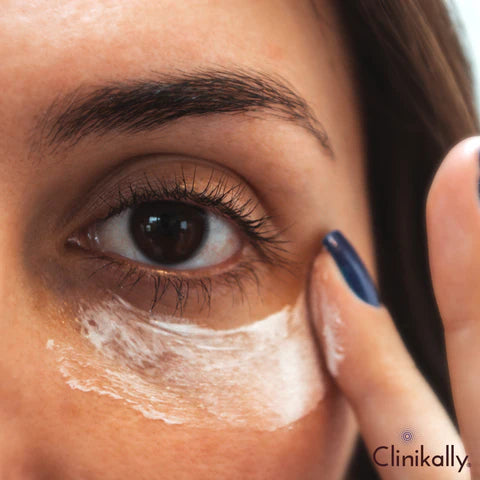
The success of sensitive skin treatments is evaluated using a combination of subjective and objective criteria. Because sensitive skin can have a variety of causes and triggers, therapy success varies from person to person. Here are some ways to assess the effectiveness of sensitive skin treatments:
-
Subjective Assessment: Consider how comfortable your skin feels. Is there a reduction in itching, burning, or tightness sensations? Determine whether there is a reduction in redness, inflammation, or the appearance of rashes. Take note of improvements in skin hydration. Treatments that work should help to maintain or restore the skin's moisture balance.
-
Monitoring Changes Over Time: Allow enough time for the treatment to take effect. Skin issues frequently take time to improve, and the effects may not be immediately seen—track improvements over several weeks or months to determine long-term effectiveness.
-
Product Tolerance: Examine how well your skin tolerates the treatment products. If the treatment includes skincare products, keep an eye out for any negative responses or if your skin gets more tolerant over time.
-
Consistency of Care: It is critical to follow the specified skincare routine or treatment plan. The efficacy of sensitive skin treatments can be influenced by consistency of application and adherence to the recommended schedule.
-
Professional Guidance: Schedule follow-up meetings with your dermatologist or skincare specialist to discuss progress and make any required changes to your treatment plan.
-
Patch Testing Results: If patch testing was used to identify specific allergens, see if avoiding these allergens results in less skin irritation.
-
Changes in Lifestyle Factors: If lifestyle adjustments were suggested (e.g., stress reduction, improved sleep, nutritional changes), consider whether these changes had a good impact on your skin sensitivity.
-
Photographic Documentation: Take photos before beginning treatment and at regular intervals afterwards. This graphic documentation might help to paint a clearer image of how skin condition evolves over time.
-
Feedback from Others: If others have noticed improvements in your skin, this can be an additional evidence of the treatment's efficacy.
-
Objective Measurements: In some circumstances, dermatologists may utilise objective measures to analyse physical changes in the skin, such as skin hydration assessments, transepidermal water loss (TEWL) measurements, or specialised imaging techniques.
-
Adjustments to Treatment Plan: If the disease does not improve or worsens, talk with your dermatologist to make any required changes to the treatment regimen. It could entail experimenting with different items, adjusting dosages, or investigating alternate techniques.
Due to the individualised nature of sensitive skin, what works for one person may not work for another. It is critical to openly speak with your healthcare practitioner or dermatologist, disclose any concerns or changes, and collaborate to identify the most effective treatment plan for your unique skin needs.
Skincare tips for sensitive skin

To avoid irritation and inflammation, sensitive skin demands a delicate and constant approach. Here are some tips for successful skincare for sensitive skin:
Do: Use gentle, non-irritating products

When it comes to skincare for sensitive skin, less is more. Avoid products that contain fragrances, alcohol, and other potentially irritating ingredients. Instead, look for products that are specifically designed for sensitive skin, and that are free of harsh chemicals.
Do: Patch test new products
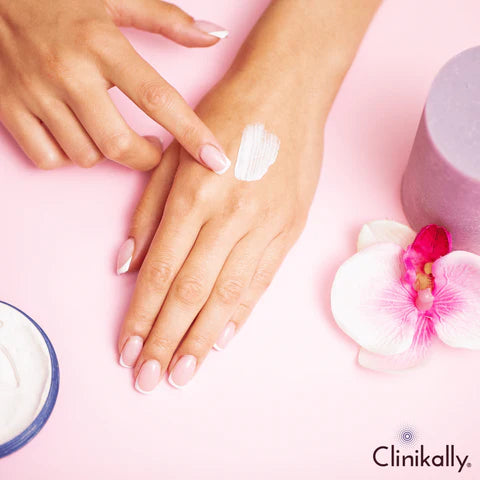
Before using a new skincare product, it's a good idea to do a patch test. Apply a small amount of the product to a small area of skin, and wait 24-48 hours to see if any irritation develops. This will help you determine if the product is safe for your skin, and avoid any unpleasant reactions.
Do: Avoid over-exfoliating
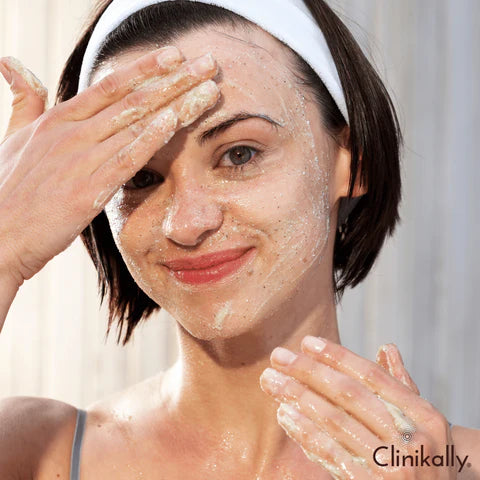
Exfoliating can be beneficial for many skin types, but it's important to be gentle with sensitive skin. Avoid using harsh scrubs, and limit exfoliating to once or twice a week at most. Over-exfoliating can irritate sensitive skin and make it more prone to redness and other reactions.
Don't: Use hot water
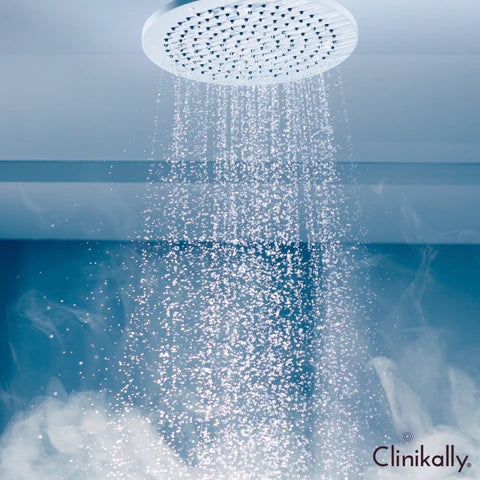
Hot water can be harsh on sensitive skin, so avoid using it when cleansing or washing your face. Instead, use lukewarm water, which is gentler and less likely to cause irritation.
Don't: Skip moisturising
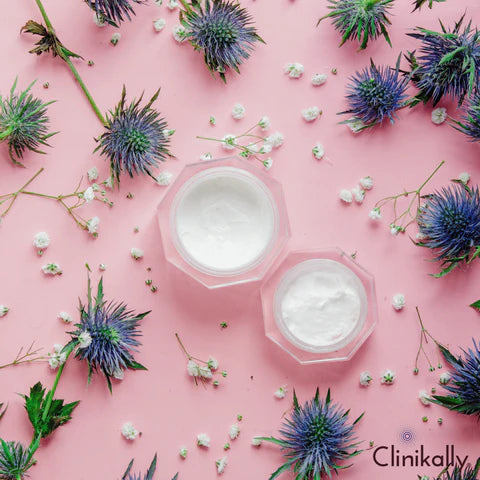
Sensitive skin can be dry and easily irritated, so it's important to keep it moisturised. Choose a moisturiser that is specifically designed for sensitive skin, and apply it daily after cleansing. This will help to soothe and protect your skin, and prevent dryness and irritation.
Do: Incorporate soothing ingredients
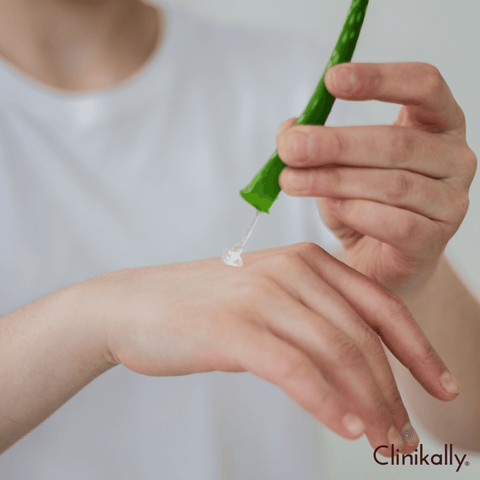
Individuals with sensitive skin may benefit from incorporating soothing substances into their skincare routine. These compounds help to minimise redness, soothe irritation, and increase overall skin comfort. Consider the following relaxing ingredients:
- Aloe Vera: Aloe vera, known for its anti-inflammatory and cooling properties, can help to soothe and hydrate sensitive skin. Look for products containing pure aloe vera or aloe vera gel.
- Chamomile: Chamomile has anti-inflammatory and antioxidant properties. Products with chamomile oil or extract can help soothe and calm sensitive skin.
- Cucumber Extract: The cooling and hydrating properties of cucumbers are well-known. Cucumber extract products are particularly reviving and calming for skin that is irritated or inflamed.
- Calendula: Calendula extract, which is extracted from marigold flowers, is commonly used for its anti-inflammatory qualities. It can be used to relieve sensitive or irritated skin.
- Green Tea Extract: Green tea has anti-inflammatory and antioxidant effects. Green tea extract can protect the skin from environmental stresses while also soothing inflammation.
- Colloidal Oatmeal: Colloidal oatmeal is made from finely ground oats that have been cooked to extract nutritional components. It contains anti-inflammatory qualities and helps soothe itchy or irritated skin.
- Licorice Extract: Licorice extract is anti-inflammatory and calming to the skin. It can help to reduce redness and inflammation.
- Bisabolol: Bisabolol, derived from chamomile, has anti-inflammatory and skin-calming effects. It is frequently utilised in skincare products for sensitive skin.
- Allantoin: Allantoin is a plant component found in plants such as comfrey. It soothes and protects the skin while also encouraging healing and minimising inflammation.
- Hyaluronic Acid: While hyaluronic acid is not generally thought of as a calming component, it is wonderful for moisturising the skin. Because well-hydrated skin is less prone to irritation, including a hydrating substance like hyaluronic acid can help to soothe the skin indirectly.
- Centella Asiatica (Cica): Centella Asiatica, often known as Cica or tiger grass, contains anti-inflammatory effects and is frequently used to soothe and calm sensitive or irritated skin.
Patch testing new products is vital when integrating soothing elements into your skincare routine to ensure they do not trigger unpleasant reactions. Consider utilising products with few components and avoiding potential irritants like scents and alcohol. Remember that everyone's skin reacts differently to skincare products, so pay attention to how your skin reacts and visit a dermatologist if you have specific concerns or recurring sensitivity issues.
Don't: Overuse active ingredients

If you have sensitive skin, employing too many active ingredients in your skincare routine might cause irritation, redness, dryness, and other undesirable effects. While active ingredients can give a variety of skin advantages, it is critical to use them sparingly and in line with product recommendations. Here are some common active substances and why they should not be used excessively:
-
Retinoids (Retinol, Retin-A): Retinoids have anti-aging benefits via increasing cell turnover and collagen synthesis. Overuse can cause dryness, peeling, and increased sun sensitivity. Begin with a lower concentration of retinol and gradually increase usage as your skin becomes accustomed to it.
-
Alpha Hydroxy Acids (AHAs) and Beta Hydroxy Acids (BHAs): AHAs (glycolic acid, for example) and BHAs (salicylic acid, for example) exfoliate the skin, clear pores, and enhance skin texture. Overuse can cause irritation, redness, and a weakened skin barrier. Begin with a lower concentration and proceed as indicated.
-
Vitamin C: Vitamin C is an antioxidant that improves skin tone, decreases hyperpigmentation, and protects against free radicals. Excessive use may cause discomfort. It is better to gradually add Vitamin C and evaluate your skin's reaction.
-
Benzoyl Peroxide: Benzoyl peroxide is an acne treatment that destroys germs while also reducing inflammation. Excessive use can cause skin dryness, peeling, and irritation. Use it as indicated, and for sensitive skin, consider a lower concentration.
-
Exfoliating Scrubs: Physical exfoliants aid in the removal of dead skin cells and the improvement of skin texture. Excessive use might cause microtears in the skin and exacerbate sensitivity. Physical exfoliants should be used sparingly, especially if you have sensitive skin.
-
Strong Antioxidants: Strong antioxidants, such as resveratrol and niacinamide, shield the skin from environmental harm. Excessive use of powerful antioxidants may cause discomfort. Introduce them gradually and monitor your skin's reaction.
-
Hydroquinone: The skin-lightening chemical hydroquinone is used to treat hyperpigmentation. Long-term use without pauses can result in negative effects. Use it under professional supervision and for the duration of the recommended treatment.
-
Essential Oils: Essential oils can provide a variety of benefits, ranging from aromatherapy to skin-soothing characteristics. Some essential oils can be unpleasant, and excessive usage can cause sensitivity. Dilute them properly, and pay attention to how your skin reacts.
Active Ingredient Safety Recommendations:
-
Begin with lower concentrations, especially if you have sensitive skin.
-
Follow the product's instructions and usage guidelines.
-
Introduce new products gradually to give your skin time to adjust.
-
Use sunscreen every day because many active ingredients can make you more sensitive to the sun.
-
If irritation occurs, reduce the frequency or stop using the product and consult a dermatologist.
Because everyone's skin is different, what works for one person may not work for another. If you have questions about a specific active ingredient or its effects on your skin, see a dermatologist for personalised advice tailored to your specific needs.
Skincare routine for dry, sensitive skin

Dry sensitive skin can be particularly challenging to care for because it is prone to irritation and requires extra hydration. Here are some tips for practising skincare for dry sensitive skin:
-
Use a gentle, non-foaming facial cleanser for dry, sensitive skin to remove dirt, oil, and makeup from your skin. Avoid using hot water, which can strip your skin of its natural oils, and opt for lukewarm water instead.
-
After cleansing, use a toner to balance your skin’s pH levels and prepare it for the next step in your skincare routine. Avoid toners that contain alcohol, which can be drying and irritating to sensitive skin.
-
Apply a moisturiser to your skin to hydrate and protect it. Look for a moisturiser for sensitive skin that contains ingredients like ceramides, hyaluronic acid, and glycerin to help retain moisture.
-
Use a facial oil or hydrating skin serum to add extra hydration and nourishment to your skin. Oils and serums can penetrate deeper into the skin than moisturisers, providing long-lasting hydration and improving the overall health of your skin.
-
Protect your skin from the sun by using a broad-spectrum sunscreen for sensitive skin with an SPF of at least 30. Sensitive skin is more susceptible to sun damage, so it is important to use sunscreen daily to prevent sunburn and other forms of damage.
Remember that consistency is essential, and finding the right products for your skin may take some time. If you have recurring issues or extreme sensitivity, you should seek personalised guidance from a dermatologist.
Establishing a daily routine for hydration and protection

Setting up a daily skincare routine that focuses on hydration and protection is critical for keeping healthy and resilient skin, especially if you have sensitive or easily irritated skin. Here's a step-by-step guide to creating a daily skincare routine that is both moisturising and protective:
Morning Routine:
-
Cleanser: In the morning, cleanse your face with a light, moisturising cleanser. Choose a sulfate-free solution that will not deplete the skin of its natural oils.
-
Toner: To balance the pH of the skin, use a soothing, alcohol-free toner. Look for toners that contain chamomile, rose water, or aloe vera.
-
Serum: Include a hydrating serum containing ingredients such as hyaluronic acid, glycerin, or vitamin B5. These ingredients help the skin retain moisture and stay hydrated throughout the day.
-
Moisturizer: To lock in moisture, use a lightweight, non-comedogenic moisturiser. Look for a product that contains ceramides, which help to maintain the skin's barrier.
-
Sunscreen: Even on cloudy days, apply a broad-spectrum sunscreen with at least SPF 30 every morning. Sunscreen is essential for avoiding premature ageing and protecting the skin from UV damage.
Daytime Tips:
-
Reapply Sunscreen: If you are going to be outside for an extended period of time, reapply sunscreen every two hours, or more frequently if you are sweating or swimming.
-
Protective Clothing: Consider wearing a wide-brimmed hat and sunglasses for additional sun protection.
Evening Routine:
-
Cleanser: To remove makeup, sunscreen, and impurities, use the same gentle cleanser you used in the morning.
-
Toner: After cleansing, reapply the toner to rebalance the skin.
-
Treatment (if necessary): Apply treatment products such as retinoids or acne medications in the evening as directed by your dermatologist.
-
Moisturizer: Reapply moisturiser to the skin to nourish and hydrate it.
Weekly or Biweekly Treatments:
-
Exfoliation: Once or twice a week, use a mild chemical exfoliant (AHA or BHA) to remove dead skin cells and promote skin renewal. If you have sensitive skin, avoid using physical exfoliants.
-
Mask (Optional): As needed, apply a hydrating or soothing mask. Ingredients such as aloe vera, chamomile, and hyaluronic acid can be beneficial.
Additional Tips:
-
Stay Hydrated: Drink plenty of water throughout the day to keep your skin and body hydrated.
-
Avoid Using Hot Water: When cleansing, use lukewarm water because hot water can strip the skin of natural oils and aggravate sensitivity.
-
Patch Test New Products: Patch test new products before incorporating them into your routine to ensure they do not cause irritation or allergies.
-
Consult a Dermatologist: If you have specific skin concerns or conditions, seek personalised advice from a dermatologist.
This routine should be tailored to your skin's specific needs and sensitivities. It is critical to stick to your routine and monitor how your skin reacts over time. Adjustments can be made based on changes in seasons, lifestyle, or any changes in your skin's condition.
Seasonal adjustments in skincare for sensitive skin

It is critical to adapt your skincare routine to the changing seasons, especially if you have sensitive skin. Different weather conditions can have an impact on skin health, and changing your skincare routine can help you handle seasonal issues. Here are some broad guidelines for making seasonal changes for sensitive skin:
Spring and Summer:
-
Lightweight Formulations: Lighter formulations of moisturisers and serums should be used. Hydration can be provided by gel-based or water-based solutions without feeling heavy on the skin.
-
Sunscreen Emphasis: Put more focus on sunscreen. Choose a broad-spectrum sunscreen with a high SPF and reapply it every two hours, especially if you spend a lot of time outside.
-
Antioxidant Boost: Antioxidants, such as vitamin C, can help protect the skin from environmental damage caused by increasing sun exposure. This can aid in the reduction of inflammation and the overall health of the skin.
-
Hydration Maintenance: Maintain your focus on hydration. To maintain moisture balance, use a hydrating toner and products containing substances like as hyaluronic acid.
-
Cooling and Soothing Products: Consider lotions with cooling and soothing components like aloe vera, chamomile, or cucumber to soothe the skin, especially if you have sunburn or heat sensitivity.
-
Minimal Makeup: Consider wearing minimal makeup to enable your skin to breathe, especially if the weather is hot and humid.
Fall and Winter:
-
Richer Moisturizers: To offset the drier air, switch to richer moisturisers. To give extra hydration and preserve the skin barrier, look for products that contain shea butter, ceramides, or fatty acids.
-
Gentle Exfoliation: To remove dry, flaky skin, increase the frequency of mild exfoliation. To avoid over-scrubbing, which can irritate sensitive skin, use a gentle chemical exfoliant.
-
Humidifier Use:·Indoors, utilise a humidifier to fight the dry air created by heating systems. This aids in the maintenance of proper skin moisture.
-
Protective Clothing: Protect your skin from cold winds and low temperatures by wearing protective apparel such as scarves and hats.
-
Avoid Hot Water: Keep an eye on the temperature of the water. Hot water can deplete the skin's natural oils, causing it to become dry. To cleanse, use lukewarm water.
-
Repair and Nourish: To strengthen the skin barrier, use products containing healing and nourishing components such as peptides, niacinamide, or ceramides.
-
Lip Balm and Hand Cream: Pay special care to your lips and hands, which are more prone to dryness in winter weather. Apply a moisturising lip balm and hand cream on your lips and hands.
Throughout the Year:
-
Patch Testing: Patch tests should be performed whenever new products are introduced to ensure that they do not cause adverse responses or sensitivities.
-
Consult with a Dermatologist: Consult a dermatologist if you have chronic sensitivity or skin problems. They can offer personalised advise and prescribe specific products based on the needs of your skin.
Keep in mind that these are general guidelines, and individual responses to seasonal changes may vary. Pay attention to how your skin reacts and make changes as needed. Consistency and attention to your skin's needs are essential for keeping healthy and comfortable skin all year.
Best skincare products for sensitive skin
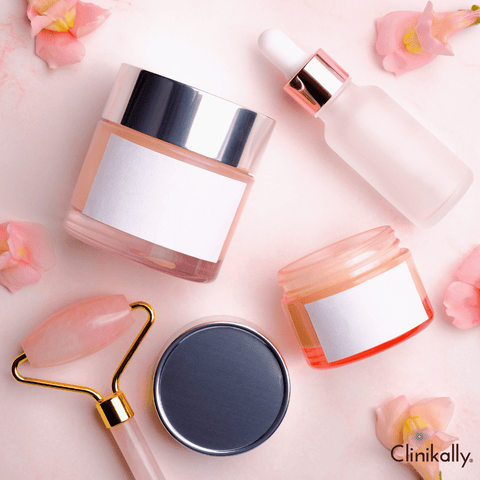
When it comes to finding the best skincare products for sensitive skin, there are a few key things to look for. First, you want to choose products that are gentle and non-irritating. This means avoiding products with harsh chemicals, fragrances, or dyes, which can be irritating to sensitive skin.
Another important factor to consider is the ingredients in the skincare products. Look for products that contain natural, soothing ingredients, such as chamomile, aloe vera, and green tea. These ingredients are known for their calming and soothing properties, and can help to reduce redness and irritation.
In addition, it's important to choose skincare products that are designed to protect and repair the natural skin barrier. This barrier is essential for keeping the skin healthy and preventing irritation and sensitivity. Look for products that contain ingredients like ceramides and fatty acids, which can help to repair and strengthen the skin's natural barrier.
Recommended cleansers and moisturizers for sensitivity
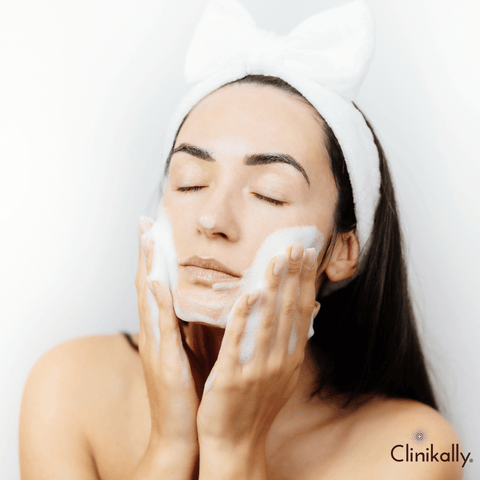
Choosing the right cleansers and moisturizers is crucial for individuals with sensitive skin. Look for products with gentle, hydrating, and soothing ingredients to help minimize the risk of irritation. Here are some recommendations:
Cleansers for Sensitive Skin:
- CeraVe Hydrating Cleanser for Normal to Dry Skin: Experience gentle cleansing with CeraVe Hydrating Facial Cleanser, designed for normal-to-dry skin. Enriched with ceramides and hyaluronic acid, it maintains natural moisture and reinforces the skin's barrier. The non-foaming formula ensures a hydrating wash without stripping the skin, perfect for a refreshed and balanced complexion.
- Cetaphil Gentle Skin Cleanser (Dry to Normal, Sensitive Skin): Hydrate your skin and protect it against all forms of dryness or skin irritation with the hypoallergenic formula and Micellar Technology in Cetaphil Gentle Skin Cleanser for dry to normal and sensitive skin types.
- CeraVe Foaming Cleanser for Normal to Oily Skin: CeraVe Foaming Cleanser is expertly crafted for normal to oily skin, enriched with ceramides, hyaluronic acid, and niacinamide. It maintains the skin's barrier, locks in moisture, and calms the skin. Developed with dermatologists, this gel cleanser deeply purifies and refreshes without disrupting skin balance.
Moisturizers for Sensitive Skin:
-
CeraVe Moisturising Cream for Dry to Very Dry Skin: CeraVe Moisturising Cream is a barrier-reinforcing hydrator, expertly formulated with hyaluronic acid and essential ceramides to alleviate dryness and itchiness by restoring the skin's natural barrier. Developed with dermatologists for dry to very dry skin types, this rich yet non-greasy cream employs MVE Delivery Technology for steady hydration day and night. Fragrance-free and non-comedogenic, it's designed to nourish without clogging pores, promoting healthier, more resilient skin.
-
Cetaphil Moisturising Cream (Dry to Normal, Sensitive Skin): Moisturise and hydrate your skin with the hydrating powers of Niacinamide, Panthenol, and Glycerin in Cetaphil Moisturising Cream, highly suitable for dry to normal, sensitive skin types. This moisturiser is also effective and useful in restoring the skin barrier function to give you overall healthy and smooth skin.
Patch testing new products is critical to ensuring they do not cause unwanted responses. Furthermore, because individual reactions to skincare products might vary, it's best to check with a dermatologist if you have specific concerns about your sensitive skin or if you have persistent sensitivity.
How to choose hypoallergenic skincare products

Individuals with sensitive skin should choose hypoallergenic skincare products because they are designed to reduce the likelihood of allergic reactions. Here are some guidelines for choosing hypoallergenic skincare products:
-
Read Ingredient Lists: Read the ingredient list on the product container carefully. Look for products with a short and straightforward ingredient list. Products with known allergies, perfumes, or harsh chemicals should be avoided.
-
Avoid Common Allergens: Avoid scents, parabens, sulphates, artificial colours, and synthetic preservatives, which are common allergies. In sensitive people, these substances may cause irritation or allergic reactions.
-
Fragrance-Free: Choose products that are labelled "fragrance-free" rather than "unscented." "Unscented" items may include masking perfumes, but "fragrance-free" products are fragrance-free.
-
Dermatologist-Tested: Look for dermatologist-tested or dermatologist-recommended products. This means that the product has been subjected to safety testing and is less likely to produce adverse reactions.
-
Hypoallergenic Label: This term may serve as a helpful indicator, but it is not FDA-regulated and does not ensure that a product will not trigger allergic reactions. Hypoallergenic products are designed to reduce the likelihood of allergic responses.
-
Patch Test: Perform a patch test before applying a new product to your full face or body. Apply a tiny amount of the product to a small area of skin (such as the inside of your wrist) and wait 24-48 hours to see if there are any adverse responses.
-
Choose Minimalist Formulations: Choose goods with simple formulas. This means fewer substances, which means less chance of exposing your skin to harmful irritants.
-
Avoid Harsh Chemicals: Avoid skincare products containing harsh ingredients like alcohol, synthetic scents, and powerful preservatives. These might deplete the skin's natural oils and create irritation.
-
Look for Calming Ingredients: Products with calming and soothing elements, such as aloe vera, chamomile, calendula, or green tea, should be used. These substances can help to soothe and relieve inflammation in sensitive skin.
-
Check for Allergen-Free Claims: Some products may include labels indicating that they are allergen-free. Look for terms like "allergen-free," "sensitivity-tested," and "non-comedogenic."
-
Consider Your Skin Type: Consider your unique skin type and issues. Hypoallergenic products are available in a variety of formulations, so choose ones that are appropriate for your skin type, whether oily, dry, or combination.
-
Consult with a Dermatologist: Consult a dermatologist if you have specific skin concerns or a history of allergies. They can make personalised recommendations depending on your skin's specific requirements.
Keep in mind that everyone's skin is unique, and what works for one person might not work for another. When introducing new items, be patient and watchful, and discontinue use if you see any signs of irritation or allergies. If in doubt, consult a dermatologist for a more customised skincare programme.
Soothe your sensitive skin with science!

In conclusion, skincare for sensitive skin can be a challenge, but with the right approach and knowledge, it is possible to effectively care for your sensitive skin and keep it healthy and happy. Avoid using harsh, irritating products, and opt for gentle, non-foaming cleansers, toners, and moisturizers that are specifically designed for sensitive skin. Protect your skin from the sun with a broad-spectrum sunscreen, and use facial oils and serums to add extra hydration and nourishment. By following these tips and using the best skincare products for sensitive skin, you can keep your skin looking and feeling its best.
Understanding the science behind skin sensitivity

Skin sensitivity is the ease with which the skin responds to numerous stimuli, such as external influences, skincare products, or internal issues. The skin is the biggest organ in the body and functions as a barrier between the internal organs and the external environment. Skin sensitivity is caused by a variety of factors, including complex interactions between the skin's structure, the nervous system, and the immune system. The following are some important elements that contribute to skin sensitivity:
-
Skin Barrier Function: The stratum corneum, the skin's outermost layer, works as a barrier, preventing water loss and protecting against external irritants. Skin sensitivity can be exacerbated if this barrier function is disrupted. Dryness, dehydration, and damage to the skin barrier can all make the skin more prone to irritation.
-
Nerve Endings and Sensory Perception: Sensory nerve endings in the skin respond to a variety of stimuli, including temperature, pressure, and chemicals. Individuals with sensitive skin may have more nerve endings or heightened sensory perception, making them more prone to discomfort or irritation.
-
Inflammatory Responses: Skin sensitivity is frequently associated with inflammatory responses. When irritants or allergens are applied to the skin, the immune system may release inflammatory mediators, resulting in redness, itching, or swelling. Chronic inflammation can make skin sensitive over time.
-
Genetic Factors: Genetics has an impact on skin sensitivity. Variations in genes associated with skin structure, barrier function, and immune response may predispose some people to have more sensitive skin.
-
Environmental Factors: Exposure to harsh weather conditions (high temperatures, wind, and sun), pollution, and allergens can aggravate skin sensitivity. Furthermore, contact with particular materials, fabrics, or chemicals can cause reactions in sensitive people.
-
Skin Conditions: Skin diseases such as eczema, rosacea, and psoriasis are linked to increased skin sensitivity. These disorders can weaken the skin barrier and cause inflammatory reactions.
-
Hormonal Changes: Hormonal variations, especially in women, might have an impact on skin sensitivity. Hormone fluctuations, such as those experienced during puberty, menstruation, pregnancy, or menopause, can influence the skin's reaction to numerous stimuli.
-
Skincare Products: Using skincare products that contain harsh chemicals, perfumes, or preservatives can aggravate skin sensitivity. Individuals with sensitive skin may need to use cosmetics designed specifically for their skin type.
Understanding the science of skin sensitivity requires taking into account these many elements and their interplay. Individuals with sensitive skin should follow a skincare routine that focuses on preserving the skin barrier, avoiding irritants, and addressing specific skin conditions. A dermatologist can make personalised advice based on a person's specific skin traits and sensitivities.
Technological advancements in treating sensitive skin
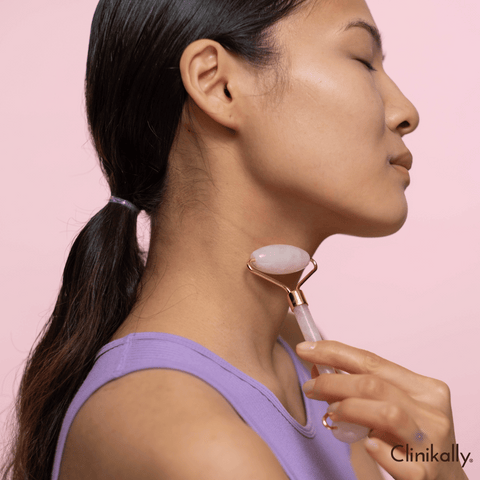
Skincare technological breakthroughs have resulted in the introduction of products and treatments that are specifically geared to address sensitive skin. Here are a few important developments:
-
Microbiome-friendly Skincare: The study of the skin microbiota has gained popularity. Scientists have discovered the significance of keeping a healthy mix of microorganisms on the skin's surface. Some skincare products now include prebiotics and probiotics to promote skin health and resilience by supporting healthy microbiota.
-
Barrier Repair Technologies: Skincare formulation innovations focus on healing and improving the skin barrier. Ceramides, fatty acids, and cholesterol are used to strengthen the stratum corneum, which reduces water loss and protects the skin from external irritants.
-
Advanced Formulations: Advanced formulation techniques, such as liposomal encapsulation and nanoemulsion, enable the regulated and targeted distribution of active substances. This helps to reduce potential irritants while also increasing the impact of soothing and relaxing compounds.
-
Biotechnology and Synthetic Peptides: Synthetic peptides with specific benefits for sensitive skin have been created as a result of biotechnological breakthroughs. Peptides can help with skin restoration, inflammation reduction, and general skin resilience.
-
Smart Skincare Devices: At-home equipment, such as LED light treatment devices and sound washing brushes, have gotten increasingly advanced. These technologies can help improve skin texture, reduce inflammation, and improve skincare product penetration without generating further irritation.
-
Minimalist Formulations: Some manufacturers prefer minimalist formulations with fewer components, particularly those that avoid frequent allergies and irritants. This method decreases the chance of generating sensitivity reactions and is especially good for people with sensitive skin.
-
AI and Personalized Skincare: To analyse skin issues and make personalised skincare suggestions, artificial intelligence is being used. Some businesses provide apps or online platforms that assess a person's skin needs, taking into consideration aspects such as environment, lifestyle, and unique skin disorders.
-
Green and Sustainable Technologies: With a growing emphasis on sustainability, the skincare sector is looking into environmentally friendly procedures. This includes using sustainable sourcing, eco-friendly packaging, and developing products with low environmental effects, which can improve sensitive skin indirectly by limiting exposure to certain toxins and irritants.
-
Hypoallergenic and Dermatologically Tested Products: Many brands are increasingly emphasising strict allergies and irritant testing. Hypoallergenic or dermatologically tested products are formulated to reduce the possibility of adverse reactions, making them appropriate for those with sensitive skin.
Individuals with sensitive skin may still react differently to different products, and what works for one person may not work for another. A dermatologist consultation is still necessary for personalised advice and suggestions based on an individual's unique skin traits and sensitivities.
















